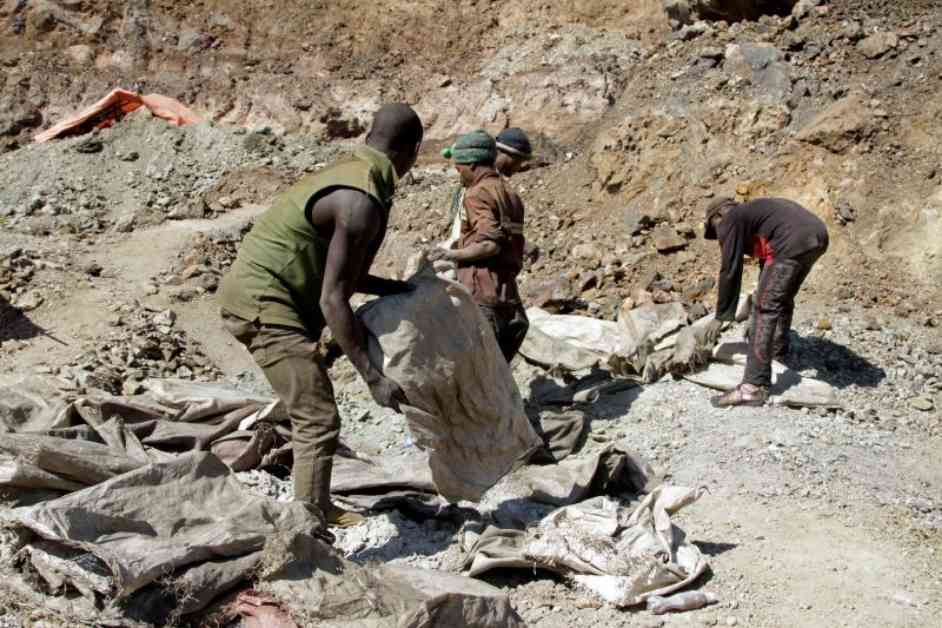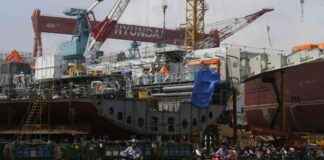South Africa’s G20 Mineral Processing Push: Overcoming Hurdles to Local Resource Benefit
South Africa holds a pivotal leadership role as the chair of the Group of 20 (G20) nations this year, aiming to rally support for increased local processing of essential metals and minerals crucial for the global shift towards clean energy. The country’s ambition is grounded in the desire to ensure that regions rich in these resources, primarily in the Global South, reap the most significant benefits from their extraction and refinement processes. However, a significant challenge looms on the horizon in the form of securing China’s cooperation, given its dominant position in the global mineral supply chain.
Harnessing Critical Minerals for Inclusive Growth: The Vision and the Obstacles
At the World Economic Forum in Davos earlier this year, South African President Cyril Ramaphosa underscored the importance of countries rich in minerals like lithium, cobalt, copper, and nickel in gaining the most from their exploitation. He highlighted South Africa’s commitment to utilizing critical minerals as a catalyst for inclusive growth and development, emphasizing the need for a framework within the G20 that prioritizes value addition close to the source of extraction. Ramaphosa’s vision aims to shift the historical dynamic where resource-rich nations in Africa lose out on the benefits that flow out of their countries to other global locales.
The Rise of Beneficiation and the Urgency for Local Processing
Interest in processing minerals locally, known as beneficiation, has surged in recent years due to the escalating demand for these resources to fuel clean technologies such as renewable energy infrastructure, electric vehicles, and batteries. Developing nations like Indonesia, Nigeria, Zimbabwe, and Namibia have taken steps to restrict raw material exports and invest in domestic processing and manufacturing capabilities to foster sustainable economic growth. However, barriers ranging from limited energy supplies and infrastructure to financing constraints pose significant hurdles to realizing the full potential of beneficiation across the Global South.
China’s Role and the Complex Landscape of Critical Mineral Processing
China’s stronghold over the critical minerals supply chain poses a significant challenge to the aspirations of developing nations seeking to enhance local beneficiation. The Asian powerhouse dominates the refining of key minerals globally, including nickel, copper, lithium, and cobalt, raising concerns about its reluctance to relinquish control and share the value creation with other mineral-rich countries. Olimpia Pilch, Chief Strategy Officer at The Critical Minerals Africa Group (CMAG), highlighted China’s vested interest in maintaining its leverage in the industry, complicating efforts to diversify processing outside of China.
Navigating Policy Barriers and Global Trade Dynamics
In addition to China’s dominance, policy barriers and trade agreements further complicate the landscape for resource-rich nations aiming to advance beneficiation initiatives. Restrictions on domestic content requirements and clauses in bilateral trade deals can impede the implementation of value-addition measures in mineral-rich countries. Anabella Rosemberg, Senior Advisor on Just Transition at Climate Action Network International, emphasized the need for greater openness from developed nations to address these barriers and foster prosperity in the Global South.
Sealing the Deal: South Africa’s G20 Presidency and the Path Forward
As South Africa assumes its role as G20 president, the focus shifts to formulating a comprehensive framework for green industrialization that supports value chain creation in developing countries. Mahendra Shunmoogam, South Africa’s Director of Foreign Trade Policy, highlighted the importance of collaboration among G20 members to achieve positive outcomes in advancing critical mineral beneficiation. By emphasizing the need for regional approaches and harnessing existing multilateral support, South Africa aims to drive a collective effort towards realizing the vision of local mineral processing and value addition in the Global South.
In conclusion, South Africa’s leadership in the G20 presents a unique opportunity to address the challenges facing local beneficiation of critical minerals. By navigating complex global dynamics, fostering cooperation among member nations, and leveraging expert insights, the path towards inclusive growth and sustainable development through local resource utilization becomes clearer. As the world looks towards a future powered by clean energy, the imperative to unlock the full potential of critical mineral processing at its source grows stronger.














